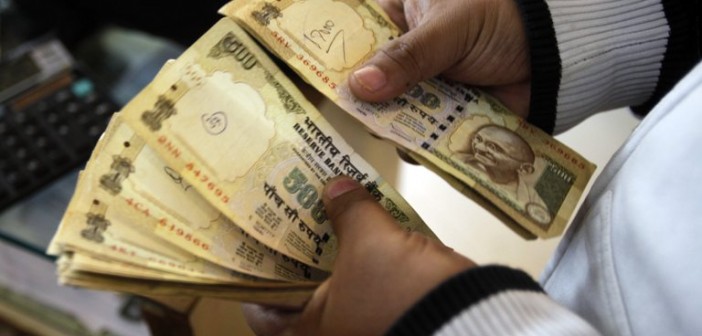PM Modi senses the country is united behind him on his bold move, writes India Inc. CEO Manoj Ladwa.
If the Opposition is right, then the Narendra Modi government’s decision to demonetise Rs 1,000 and Rs 500 notes is nothing short of an economic calamity of proportions never encountered before. Saner voices, unfortunately drowned out by the cacophony of doomsday prophets, however, have taken a more nuanced position on the issue.
Yes, the dramatic move to clean the Augean Stables of unaccounted or “black” money will cause considerable short-term pain. Yes, it may hit consumer demand and could well knock off up to half a percentage point from the GDP growth rate over the next couple of quarters.
But the naysayers will do well to remember that it will also wipe out an estimated $70 billion in unaccounted money currently in circulation. This money feeds corruption, terrorism, the narcotics trade and other nefarious activities that eat away at the innards of the Indian economy and society, deprive the government of legitimate revenues and help perpetuate the cycle of poverty that Modi has sworn to eradicate.
Let’s look at specifics. The demonetisation initiative is expected to reduce the Reserve Bank of India’s liability – which, by extension, is an outstanding obligation of the Government of India’s – by $70 billion, or almost a full year’s borrowing programme.
This will help create conditions for greater private sector investments, lower interest rates and make large volumes of credit available both for corporate borrowers for fresh outlays as well as for individuals for more credit-fuelled purchases.![]() Then, it will drive more transactions into the “white” or formal economy, thus, generating more revenues for the government. This will help Finance Minister Arun Jaitley keep his promise of reducing the corporate tax rate to 25 per cent. This will address a long standing demand of both foreign and domestic investors and will almost certainly improve the ease of doing business in India.
Then, it will drive more transactions into the “white” or formal economy, thus, generating more revenues for the government. This will help Finance Minister Arun Jaitley keep his promise of reducing the corporate tax rate to 25 per cent. This will address a long standing demand of both foreign and domestic investors and will almost certainly improve the ease of doing business in India.
And who knows, Jaitley might even be tempted to ease the slabs for income tax payers to compensate them for the temporary inconvenience they are having to bear while the process of demonetisation plays out.
And finally, it could come as a god-sent for foreign investors who fear to venture into India because of persistent demands for bribes from the lower bureaucracy, especially in the customs and direct and indirect tax departments.
So far, all the surveys point to overwhelming support from ordinary Indians on whose behalf, ostensibly, the Opposition has once again brought India’s Parliament to a halt. Several news reports also provide corroborating anecdotal evidence – yes, people are inconvenienced by the sudden demonetisation but, by and large, are willing to bear it for the greater common good.
As many people have said several times in the past, Modi is a bold political gambler. My feeling is that he senses the country is united behind him and is drawing sustenance from this support to carry on down the lonely path he has chosen.
More power to him and the Indian people.







